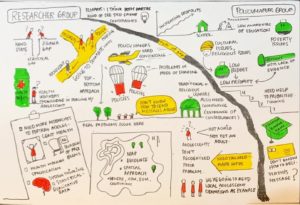Improving the culture of evidence-informed decision-making in the Brazilian public sector
How can the culture of evidence-informed decision-making be improved in the Brazilian public sector? Davi Romão discusses some findings from using the Context Matters framework to consider this question.






